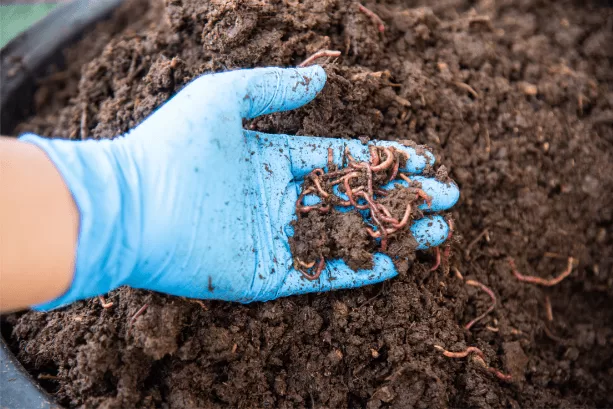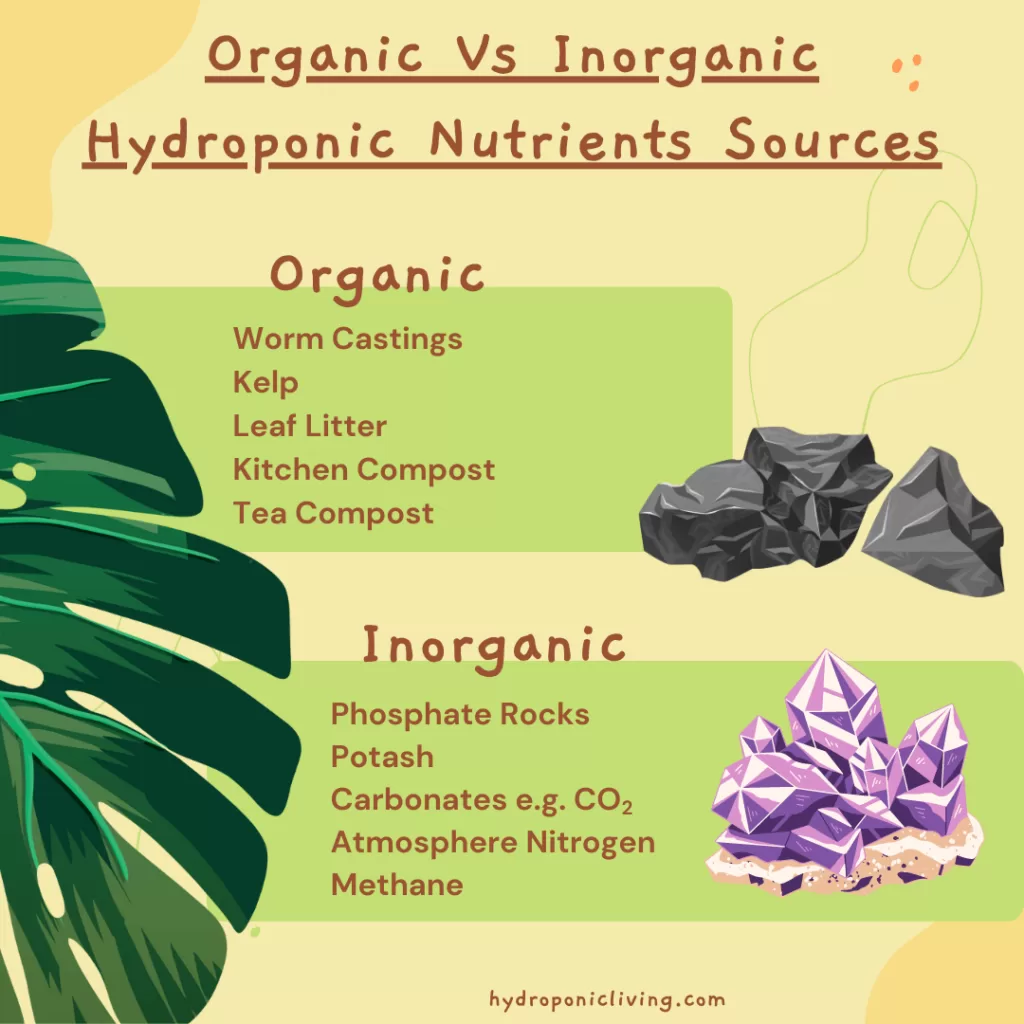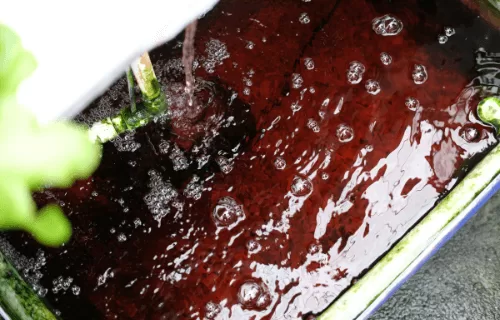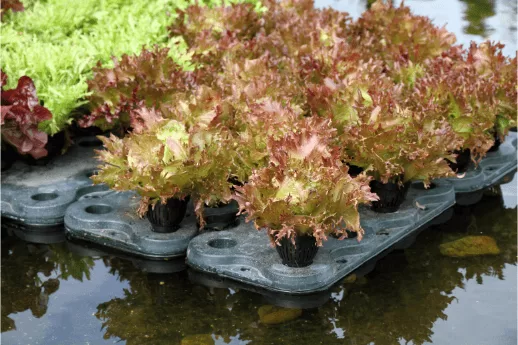The recent climate change and health awareness boom have made everyone suspicious of inorganic food and crops.
Even hydroponic growers are seeking ways to use organic nutrients for their vegetation.
But are inorganic nutrients really that harmful to our planet and bodies as compared to organic ones?
Let’s understand organic vs inorganic hydroponic nutrients in detail.
As per the legal conditions in most countries, including the USA, a crop can only be labeled as organic if all the nutrients and pesticides used to grow it are organic as well.
So, an organic crop is one that uses organic nutrients, but then what are organic nutrients?
Table of Contents
What Are Organic Nutrients?
Going back to the fundamentals, the organic word is derived from the Greek word “organikos” which means “of living organ”.
In this context, organic nutrients would be those that are obtained directly or indirectly from living organisms. Direct can be manure (animal dung), and indirect can be compost formed from tea, leaf litter, kitchen waste, etc.
In a more scientific context, organic nutrients can be defined as those which contain carbon as an essential nutrient.
All life on earth, whether they be animals, plants, algae, fungi, or bacteria, is carbon-based. So, any fertilizer made from a living organism would definitely have carbon as well.
In addition to carbon, they also contain other nutrients in varying quantities and are given to plants as per their needs and requirements.
What Are Inorganic Nutrients?
Knowing what organic nutrients are, inorganic ones are those nutrients that are man-made also known as synthetic fertilizers or nutrients.
In other words, inorganic nutrients are those that contain nutrients like nitrogen, phosphorus, and potassium and do not contain carbon as an essential constituent.
They are made from non-biotic sources, like chemicals, minerals, and salts, which you can’t give directly to the plants.
unlike organic nutrients, they are processed heavily before being able to be given to plants.
How Do Organic & Inorganic Hydroponic Nutrients Work?
Inorganic nutrients like urea, ammonium sulphate etc change to ionic forms very quickly. Those ions are taken up by the plants and are used in different processes.
Unlike inorganic nutrients which are readily available to the plant, the organic ones first need to be broken into the absorbable form. In soil, this is not a problem at all, as the natural soil-dwelling organisms break down the organic fertilizers into simpler forms.
Soil plant supplements not only helps the plant take up the nutrients but also makes the structure of soil making it fertile, hence called “fertilizer”. Since the supplements in hydroponics only aim to help plants and not fertilize the medium, they are simply called nutrients, not organic and inorganic fertilizers.
Adding microbes to the hydroponic water is not feasible. Why? First and foremost, the water in the hydroponics is covered by the lid that contains the plants, so there is very less oxygen reaching the water.
Bacteria and other microbes cannot live in such an environment, nor can plant roots absorb oxygen. Moreover, the decomposition process is very stinky.
The whole place would smell awful!

The solution to this problem is adding organic nutrients which are already broken down by natural means.
Like using the microbes to break down the nutrients, and then adding them to the hydroponic water as a nutrient solution.
Does it make them synthetic? No, it would be synthetic if we use chemicals to break them down, which we didn’t.
You can liquify and use other organic hydroponic nutrients like
- compost tea
- seaweed
- chicken manure
- bone meal
- fish meal
The plant takes these organic nutrients the same as inorganic ones, which are readily available to the plant.
So, if the plant takes up the organic compounds the same as the inorganic ones, then how do they really differ?
How Do Organic And Inorganic Nutrients Differ
After understanding what organic and inorganic nutrients are, now it is important to understand how these two compare too. Is there any rivalry between the two, or are these simply two different paths to the same destination? Let’s find out by following organic vs inorganic hydroponic nutrients differences
Origin
Organic nutrients, as explained earlier, have their origin in living organisms. They can even be made at home.
Inorganic nutrients, on the other hand, can only be bought from the market, as they are made from chemical processing of the raw materials that are obtained from inorganic sources such as rocks, salts, and other compounds.

Application
Plant-based organic hydroponic nutrients or kitchen waste compost are mostly used in hydroponics. However, we know that organisms in the soil break down the nutrients in organic nutrients to make them available to the plants.
Since cleanliness is to be maintained in the hydroponics, soil or microbes cannot be added to the hydroponics tank. Therefore, they must be converted to nutrient solution first and then added to the tank.
Synthetic nutrients on the other hand are made by taking into account all the necessary points regarding hydroponic plants. Though they come both as a nutrient solution and in solid form, they can be added directly to the growing media without any prior treatment.

Production
Production of organic hydroponic nutrients is much simple and requires no to minimum processing. Compost your kitchen waste, let it sit inside a bucket full of water for certain days. Once it has mostly dissolved, filter and add the water into the hydroponic tank.
Production of inorganic hydroponic nutrients is much more complex. these are not derived from living beings and are completely man-made. Making them requires a lot of cost, and energy and hence makes a lot of industrial waste as well. Environmental-conscious people do not sit right with these compromises and therefore advocate against inorganic fertilizers and opt for organic hydroponics.
Absorption
In soil, plants take much more less time to absorb inorganic fertilizers as compared to organic ones. However, in hydroponics, once the nutrients are added to the hydroponic growth media, both the organic and inorganic nutrients are taken up by the plant in a similar way.
They can be absorbed via the plant roots as well as directly from the leaves when sprayed.
Optimum Conditions
Cleanliness is the last thing to worry about for organic growers because it is basically the microbes and other earthly vermin that degrade the organic hydroponic nutrients to absorbable form. The more plant-friendly microbes the soil has, the healthier it is for the plant.
On the other hand, cleanliness is one of the most important factors tied to the hydroponic culture technique. As a matter of fact, most people go for hydroponics instead of traditional gardening because the former is much cleaner and hygienic.
Maintenance
Synthetic nutrients are made to meet the exact needs of the plants. Each nutrient is in a specific ratio that fulfills the plant’s needs. Moreover, there are instructions regarding how much and when to add the nutrients. This makes it really easy for anyone to grow plants.
On the other hand, organic hydroponic nutrients are never specific in their contents. They can contain less, more, or the exact amount of nutrients needed for plant growth. Like, how can you really know what nutritious component the extracts of your compost tea contain? This makes it really confusing, especially if you are not an experienced or expert grower.
Price
Since synthetic hydroponic nutrients are manufactured on an industrial scale, they cost much lesser than organic ones.
However, organic compounds change the structure of the soil and may justify their higher price by providing long-term benefits to the soil. They fertilize the soil and may also benefit the crops that are sown and cultivated later.
How Do Organic and Inorganic Hydroponic Nutrients Relate
Plants lack both the brain and taste buds (sarcasm) and hence are unable to tell the difference if what they are taking in is organic or inorganic. All they care about is the nutrients, which are provided by both, let it be organic or inorganic.
Those nutrients help plants grow quickly and efficiently, no matter their type or origin. The aim of both organic and inorganic fertilizers is the same, it is only the processes before and after the application of nutrients that differ.
Some myths regarding Organic and Inorganic fertilizers
Inorganic Hydroponic Nutrients Are Unhealthy
It is a commonly held misconception that inorganic means unhealthy, which is actually proven to be far from true.
If inorganic means anything, then it’s that humans have reached enough agricultural advancement to be able to mass produce nutrients to grow plants much more efficiently to meet the needs of the growing human population.
The results of both are pretty much the same. The vegetables grown with inorganic fertilizer are as fit for human consumption as organic ones. Actually, most of the best hydroponic nutrients for vegetables available in the market are inorganic.
Organic Nutrients Are More Nutritious
Though the nutritious contents of organic nutrients are higher, plants take up ions, not a nutrient solution as a whole. Those ions are inorganic.
So, when the nutrient is in inorganic form, the ions are more readily available to the plant as compared to the organic form.
Studies have shown that there is only a slight difference in the nutritious contents of organic produce as compared to inorganic ones.

So, Which One?
Neither organic nor inorganic fertilizer is objectively good or bad. Both have their good and bad sides.
Organic fertilizers on the one hand are good for the environment, but on the other hand, take more time to dissolve, and are really costly and difficult to use. Inorganic nutrient production process might be bad for the environment, but they are really affordable and easy to use.
So, the choice really comes down to whether you’re willing to compromise your comfort and pocket for the environment. So, you better take time in making your decision before buying one. A much better approach is testing both and seeing which one works best for you.